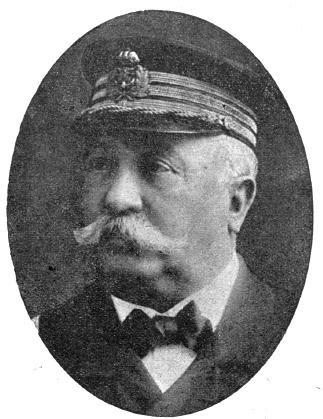
Story Highlights
- historical event:
- Admiral Maximilian Njegovan received the rank of Grand Admiral (Grossadmiral), the highest rank in the Austro-Hungarian Navy. It is not widely known that the Austro-Hungarian Navy was the sixth largest in the entire world. Njegovan is pictured above, hailing Emperor Charles I, the last Austro-Hungarian ruler.
Maximilian Njegovan was born on this day to a Croatian family in Zagreb. His family had a long tradition of producing professional soldiers. He graduated at the Naval Academy in Rijeka, Croatia, and was one of the best students of his generation. He first commanded the torpedo boat Condor, but was soon assigned to much larger ships, and also performed administrative duties. During World War I (the Great War), he became the commander of the entire Austro-Hungarian Navy, one of very few people not of Germanic origin to reach this position. It is not widely known that the Austro-Hungarian Navy was the sixth largest in the entire world.
Njegovan’s flagship was the powerful Tegethoff, which belonged to the largest class of dreadnought battleships ever built by Austria-Hungary. The ship weighed around 20,000 tons and its main armament consisted of 305 mm guns. In some places its armor was as much as 28 cm thick, and the ship had over 1,000 crewmen.
The Grand Admiral preferred a cautious tactic during World War I. He implemented a “fleet-in-being” policy, which was based on keeping his fleet intact for as long as possible, thus keeping the enemy fleets tied down without actually risking any ships. German Emperor Wilhelm II allegedly tried to convince him to perform a naval attack on Venice, which Njegovan refused. Some suspect that this was the reason he was relieved of duty and replaced by Miklós Horthy, who later became the Regent of Hungary.
Njegovan was retired on 1 March 1918 and lived the rest of his life in Zagreb, where he died aged 71.




